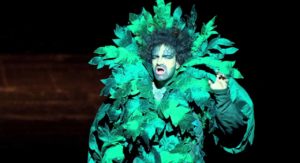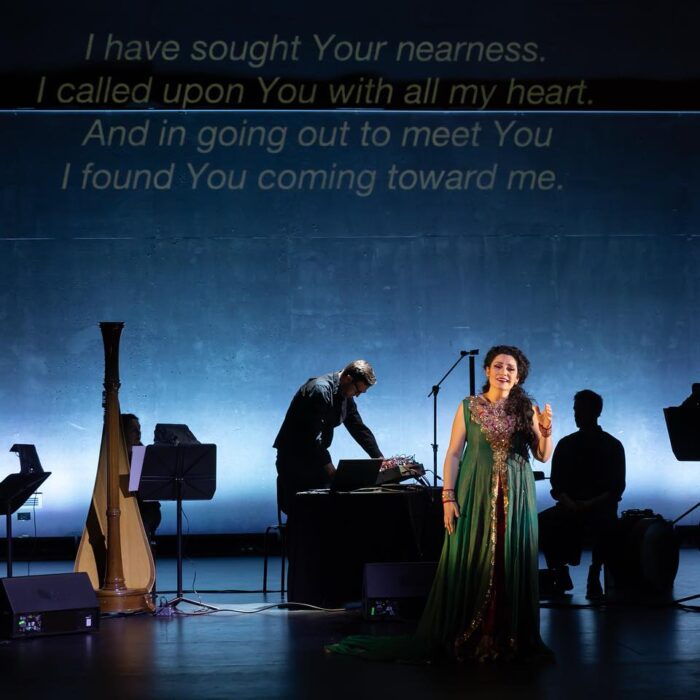
Opera Meets Film: ‘Les Intouchables’ Questions Opera’s Traditional Stance
By David Salazar“Opera Meets Film” is a feature dedicated to exploring the way that opera has been employed in cinema. We will select a section or a film in its entirety, highlighting the impact that utilizing the operatic form or sections from an opera can alter our perception of a film that we are viewing. This week’s installment we will take a look at the French film “Les Intouchables.”
It is customary for filmmakers to utilize opera to amplify the commonalities between the two artforms. Afterall, both represent Wagner’s ideal “Gesamtkunstwerk,” total works of art. No other artforms in human history are as complete as either film or opera. So it is no surprise that we often see opera in films used to amplify the meaning of the latter. Just scan through our essays on opera in film to see how deep this can go.
But “Les Intouchables” takes a different approach. The world of classical music is crucial to the world of the film, establishing the high-end nature of Philippe, a wealthy, but paralyzed man. As such, his luxury and his own state of mind are very much linked to the past, in this case, classical music.
He is counterpointed by Driss, a man from the ghetto, who is more connected with the challenges of modern life. In fact, while Philippe’s life is in shambles due to his paralysis, the film argues that his difficulties are brought on by himself, whereas Driss struggles with a world he can’t control. That said, Driss’ immersion in that world (Philippe spends most of his time in his ancient mansion), makes him more in touch with the realities of the world.
There is a fun sequence between the two of them at Philippe’s birthday party where an ensemble plays music for them. Driss can’t connect with the music on an abstract level, but he does start to connect with it through his imagination. The film establishes him as an educated and intelligent man, so his musings on the classical music are never meant to show him as out-of-touch or ignorant. He is anything but that. It is a highly insightful scene, which is further amplified when the two go to the opera.
In a very brief but potent scene, Driss and Philippe go to see “Der Freischutz.” When Driss sees a man dressed in an elaborate “tree” costume, he can’t but start laughing in the middle of the work. His behavior isn’t well-received by those around him, though he doesn’t care – he repeatedly notes how ridiculous the man looks in the costume. Moreover, he also ridicules the fact that the opera is in German, a language he can’t even speak.
Of course, this is Driss, who has experienced and lived a harsh reality. He can’t connect to an imagined character just like he can’t connect to pretentions of grandeur. He wants something that represents the world, that challenges it, that changes it. He wants to be spoken to in a language (both literal and metaphorical) that he can understand. That’s why he starts commenting on the classical music the way he does; that’s why he laughs at the opera. For him, these old artforms are pathetic and ridiculous if they don’t look for ways to connect with audiences. Instead of forcing audiences to accept them on their own terms, Driss’ attitude calls for those artforms to seek out the connection to the audiences.
This reflects his subtle interactions with Philippe and how he ultimately gets his friend to come to terms with his own reality. For Driss, Philippe has to let go of his sense of loss and insecurity and reach out to potentially meet the woman of his dreams.
In the same way, the film subtly plays up a conversation that has been a part of the classical music world, and especially opera world, over the last decade. Should we modernize productions so that they speak to an audience in newer and more relevant ways, even if they overlook the original intentions of their creators? Or do we preserve the original intentions and present the works on their own terms?
The film itself lacks the typical structure of most movies; conflict is subtle or completely overlooked in favor of a freer exploration of human life. The directors, Olivier Nakache and Eric Toledano, are almost questioning why a film needs to have tension or overriding conflict to be a film. Their overriding humanist approach with the film as a whole suggests that their mind is made up with regards to the best way to present opera.


